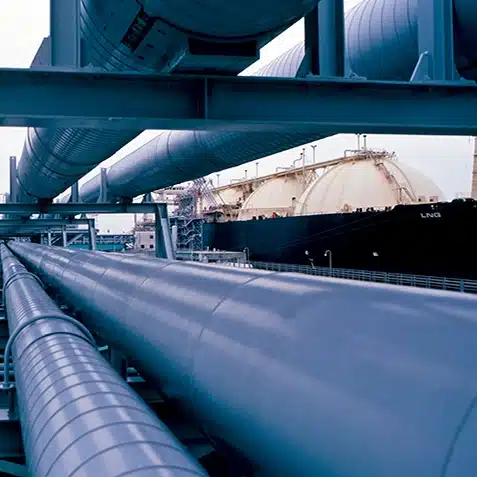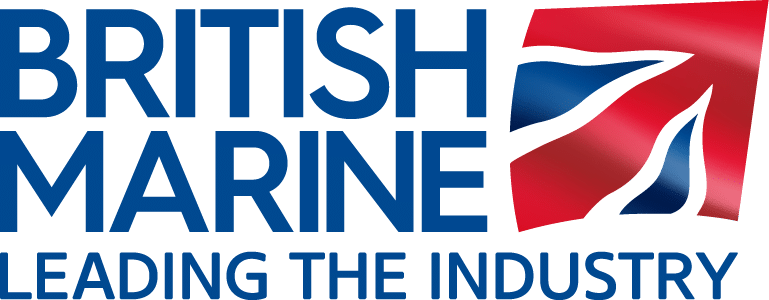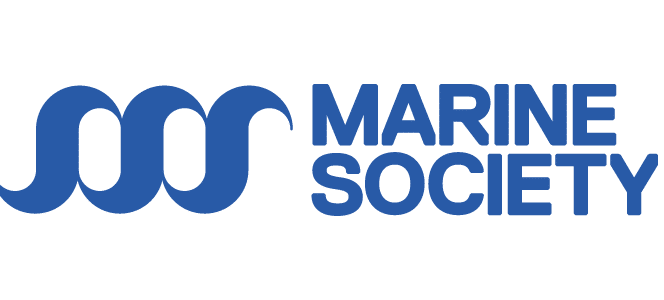Offshore Operations Course
Diploma in Offshore Operations
Offshore Operations
MTA’s Offshore Operations Diploma delivers specialist training for working in offshore logistics, vessel coordination and marine support roles within the global and renewable energy sectors.
Study online with Maritime Training Academy Specialists and gain the knowledge required to manage personnel transfers, safety protocols and supply chains within offshore infrastructure environments.
This globally recognised qualification is designed for operations & logistics professionals entering offshore support, operations planning or marine coordination roles and supports careers across oil and gas, wind energy and marine services.

Professional Offshore Operations Qualification
Learn how to manage personnel transfers, marine logistics and offshore operations in line with global safety and energy sector standards.
Contact us below to enrol today, or speak with our experienced course advisors.

Duration:
12 - 18 months
Learn at your own pace
Online Course:
Study from anywhere

Cost:
Diploma: £3,195
Certificate: £2,295

Recognised by: 
Offshore Operations Diploma vs Certification
Choose the right path for your career:
Comprehensive Training: Covers offshore vessel coordination, supply chain logistics, HSE compliance & operations within oil & renewable energy.
Flexible Study Duration: 12 – 18 month depending when you enrol to the program, study online at your own pace, from anywhere in the world.
Marine Industry Career Opportunities: 100% Online, with access to our student learning portal
Long-Term Career Impact: Offshore Operations Coordinator, Marine Logistics Manager, Vessel Support Planner & Offshore Supervisor.
Global Recognition: Our Diplomas are recognised by the University of Portsmouth and are supported by industry associations.
Assignments: One assignment is required to be completed and submitted at the end of each module, based on that particular subject.
Certification: you will receive a PDF Digital certificate (Printed Certificate Completion Pack available).
Final Examination: There will be a final examination upon completing and submitting all student assignments (exams are sat in April or October).
Post-Nominal letters: On passing the Diploma you can also use these letters after your name: MTA Dip OO
Digital Course Badge: Upon successful completion students will receive an exclusive course badge for use on business cards, LinkedIn profiles and website(s)!
Diploma - £3,195
A globally recognised qualification for careers in offshore logistics, marine operations and energy sector support across oil, gas and renewable infrastructure.
✔
✔
✔
✔
✔
✔
✔
✔
✔
✔
Certificate - £2,295
Specialist Offshore Operations Training without formal assessments, for those who do not require a recognised international diploma.
✔
✔
✔
✔
✔
✔
✔
Offshore Operations Curriculum: 10 Modules
Learn how offshore infrastructure works and gain practical knowledge in vessel coordination, logistics support, HSE procedures and supply chain management.
Our Internationally recognised operational & logistical training covers personnel transfer planning, marine operational protocols, offshore safety standards and coordination between vessels, rigs and shore-based teams. You’ll also explore how to manage operations across oil, gas and renewable energy projects.
1. Offshore Surveying
- The formation of oil
- Seismic operations
- Underwater site surveys including pipeline surveys
- Seabed survey for jack-ups
- Fundamentals of offshore drilling
- Environmental factors
2. Offshore Oil and Gas Drilling Industry Introduction
- Introduction
- The history of the drilling industry
- The scale and growth of the industry worldwide
- Types of drilling rigs
- The history of offshore oil production
- Overview of the Subsea Equipment And Associated Shutdowns (ESDS)
- Introduction to the working environment
3. Production & Drilling Safety with Roles and Responsibilities
- Offshore drilling rig personnel
- Offshore safety and safe working practices
- Responsibility of the rig’s stability
- Maintenance of offshore FSPOS and drilling rigs
- Drilling rig – crane and subsea maintenance schedules
- Helicopter equipment (fire prevention and refuelling) and heli-deck operations
- Hazardous areas
- Offshore production personnel
- Cargo control operational overview
- Offshore crane types and operational overview
4. Semi-Submersible/DrillShip/Jack-up Transit Operations
- Semi-submersible/drillship moving operations
- FPSO transit and mooring
- Dynamic Positioning (DP) operations overview
- Propulsion systems and controls
- Ballast/de-ballasting operations overview
- Watertight integrity (column and cross bracing structures and safety equipment)
5. Marine Drilling Systems and Equipment with an Operational Overview
- Drilling structure and terminology
- Mud and bulk process system – operations and equipment
- Blowout preventer and associated equipment
- The choke and kill manifold & mud gas separator description
- BOP regulations and testing
- Blowout kicks and well control
- Drilling equipment
- Wireline, well testing, cementing, workovers and coil tubing activities overview
- Tensioner and compensators for semisubmersible/drillship
6. Semi-Submersible/Drillship/Jack-up/Offshore Drilling Operations
- Introduction to the drilling control network systems (cyberbase)
- Running the/deployment of the 18-3/4” BOP stack and the marine riser
- Drilling rig safety equipment and philosophy
- DP operations including posmoor for applicable vessels
- Emergency power systems
- Cantilever and drill floor skidding equipment
- Jack-up jacking systems/leg lock systems
- Fire protection systems (passive and active)
7. Production Vessels Marine Operations Offshore
- Introduction to FPSO mooring and production operations
- Pipeline systems and risers summary
- Introduction to ballast operations on an FPSO
- Production (cargo) operations overview
- The topside process system and equipment
- The FPSO turret mooring system
- Types of mooring systems for FPSOS
- Offshore pipelaying
- Windfarm/oil & gas jack-up operations
8. Anchor Handling and Supply Vessel Operations
- Anchor handling and supply vessel operations
- The standby boats
- Heavy lift crane barges
- Semi-submersible floatover vessels principle of operation
- Shuttle tankers
- Remote Operated Vehicles (ROVS)
- Floating Storage and Re-Gasification Unit (FSRUS) & Floating Liquid Nitrogen Gas (FLNG) Reliquefaction System
- The Diving Support Vessel (DSV)
- Accommodation vessels
9. Introduction to Offshore Legislation, Guidance and Governing Bodies
- Introduction to offshore legislation and governing bodies
- Logistic operations offshore
- Oil spill response
10. Health and Safety for the Oil and Gas and Renewable Industries
- Health and safety for the oil and gas industry
- Offshore accident investigation
- Safety case history – offshore oil and gas industry
- Preservation and safety of the environment
Hear from our Students
Meet the Course Director
Ian Bryant
My career spans over 40 years from all operating stages to Chief Engineer on a variety of vessels including cable-laying ships and other offshore assets, such as offshore drilling ships/ rigs and selfpropelled jack-up units.
More recently from 2002, I formed an independent Offshore Consultancy providing a range of services based around training, system procedures and competency for Offshore Blue Chip Companies involved in offshore drilling and the offshore renewables. The renewables relate to Wind Turbine Installation Vessels, HVAC substations and other aspects of the wind energy sector.
Other aspects of work include operations manuals for offshore renewables and oil and gas assets as well as Failure Mode Effect Critical Analysis (FMECAs) for well-known offshore companies.

Offshore Operations Course FAQs
Find out more about the course with our FAQs below.
How do I start a career in offshore operations?
Begin with a recognised qualification like this one from the MTA that covers offshore logistics, vessel coordination and operational safety. This diploma prepares you for support roles in marine and energy sector environments.
What qualification will I receive from this offshore course?
You’ll earn a Diploma in Offshore Operations from the Maritime Training Academy, recognised internationally across offshore, marine and energy logistics sectors.
Is this training suitable for roles in oil and gas or renewables?
Yes. The course supports careers in both traditional offshore oil and gas as well as growing renewable energy fields such as offshore wind.
How much can I earn working in offshore operations?
Salaries vary by role and region, but offshore logistics coordinators and operations planners typically earn between £35,000 and £65,000 annually, with higher earnings in remote or senior positions.
Can I take this course without offshore experience?
Absolutely. The diploma is suitable for both experienced professionals and those transitioning from marine, port or logistics backgrounds into offshore roles.
What kind of offshore vessels or infrastructure does the training cover?
You’ll explore support vessels, supply chains, jack-up rigs and offshore platforms, with training focused on coordination and safe operational delivery.
See our FAQ page for more questions answered about MTA courses.
Supported by:


Why Choose The Maritime Training Academy?

Flexible
Online learning allows you to study in your own time, at your own pace from anywhere in the world. This saves on travel and classroom costs and allows you to fit your studies around your job and progress your career.

Supportive
While the nature of distance learning is independent study, we recognise the importance of support. Students can contact us at any time during their course for assistance and our team of industry experts are always on hand for advice.

Expertise
We have over 50 industry experts writing, developing and advising on our course material. We truly believe that allowing students to tap into their expertise and knowledge is of the utmost importance to fulfil your dream career.
If you would prefer to complete this as a classroom-based course, please contact us.
